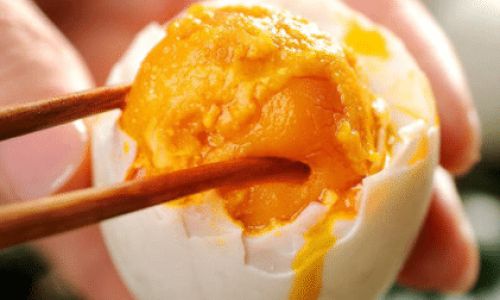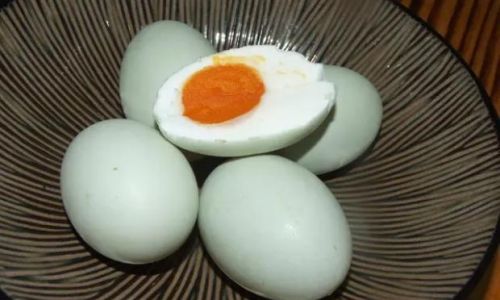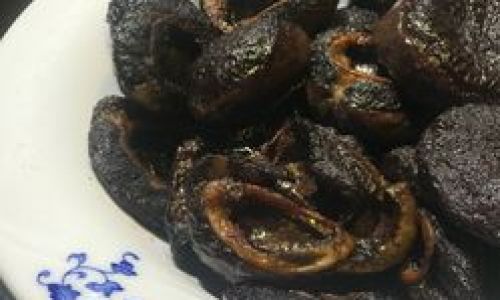Introduction
In the culinary realm, preservation techniques have been pivotal in extending the shelf life of various foods, including eggs. One such method, particularly prevalent in Asian cuisines, is the art of salting or pickling duck eggs, a process that transforms them into a delicacy known for its rich, creamy yolk and salty, savory taste. However, like any food preservation technique, there exists a delicate balance between sufficient and excessive treatment. This article delves into the consequences of over-salting or腌制时间过长 (prolonged salting) duck eggs and explores whether they are still safe for consumption.

The Traditional Practice of Salting Duck Eggs
The tradition of salting duck eggs dates back centuries, with origins tracing to China. It involves immersing duck eggs in a brine solution, often containing salt, water, and sometimes additional spices or herbs, for a period ranging from a few weeks to several months. This process draws moisture out of the eggs through osmosis, while the salt and other ingredients penetrate the shell, flavoring the egg and inhibiting bacterial growth, thereby preserving it.
The resulting product, known as salted duck eggs or 咸鸭蛋 (xián yā dàn) in Chinese, is a staple in many Asian households. Its unique flavor profile, characterized by a salty exterior and a creamy, oil-rich yolk that can range from a soft, runny consistency to a firm, almost solid state, makes it a favored ingredient in various dishes, from rice porridge to mooncakes.
The Importance of Salting Duration
The duration of the salting process is crucial in determining the final texture and taste of the duck eggs. A shorter period typically yields eggs with a milder flavor and a moist interior, while longer salting results in a stronger, saltier taste and a firmer texture. The ideal salting time can vary based on personal preference and regional traditions, but generally, it falls within a range that ensures both flavor development and food safety.
The Risks of Over-Salting
Despite the appeal of a well-salted duck egg, prolonging the salting process beyond recommended limits can introduce several risks, impacting both the edibility and safety of the eggs.
-
Excessive Sodium Intake:
The most immediate concern with over-salted duck eggs is their high sodium content. Salt, primarily sodium chloride, is essential for flavor and preservation but excessive intake can lead to health issues such as hypertension, cardiovascular diseases, and kidney problems. For individuals with pre-existing health conditions or those sensitive to sodium, consuming over-salted eggs could exacerbate these conditions.
-
Texture and Flavor Imbalance:
Prolonged salting not only increases the sodium level but also alters the texture and flavor profile of the eggs. The yolks may become excessively firm, losing their creamy, oil-rich appeal, while the whites can become rubbery and overly salty. This imbalance can render the eggs unpleasant to eat, defeating the purpose of the preservation process. -
Microbial Growth and Food Safety:
While salt acts as a preservative by creating an environment hostile to bacteria, over-salting does not guarantee complete protection against microbial contamination. If the salting conditions are not meticulously controlled, such as using impure water or failing to maintain proper storage conditions, prolonged exposure could lead to the growth of harmful bacteria, including Salmonella or Clostridium botulinum, which can cause food poisoning.Furthermore, high salt concentrations can favor the formation of certain types of bacteria that are resistant to high osmotic pressure, known as halophiles. These bacteria, while not always pathogenic, can alter the sensory properties of the eggs, making them unacceptable for consumption.
-
Nutrient Degradation:
Over-salting can also lead to the degradation of nutrients present in the eggs. Prolonged exposure to high salt concentrations can denature proteins and vitamins, reducing the overall nutritional value of the eggs. This is particularly concerning given that eggs are a rich source of high-quality protein, essential fatty acids, vitamins, and minerals.
Can Over-Salted Duck Eggs Be Consumed?
The question of whether over-salted duck eggs can be consumed hinges on several factors, including the degree of over-salting, storage conditions, and individual health considerations.
-
Mild Over-Salting:
If the eggs have been slightly over-salted but have been stored properly and show no signs of spoilage (such as off odors, discoloration, or mold), they may still be safe to eat for healthy individuals in moderation. However, it is advisable to rinse the eggs thoroughly under running water to reduce the sodium content before cooking. -
Severe Over-Salting:
In cases of severe over-salting, where the eggs have been left in brine for an excessively long period or under poor storage conditions, it is prudent to discard them. The high sodium levels, altered texture, and potential microbial contamination make these eggs unsuitable for consumption.
-
Health Considerations:
For individuals with health conditions such as hypertension, kidney disease, or heart problems, even mildly over-salted eggs should be consumed with caution. Their high sodium content could exacerbate symptoms or lead to adverse health outcomes.
Conclusion
In summary, while the art of salting duck eggs offers a delightful culinary experience, it is imperative to strike a balance between sufficient and excessive salting. Prolonged salting not only alters the taste and texture of the eggs but also poses health risks due to excessive sodium intake and potential microbial contamination. Therefore, it is crucial to follow recommended salting durations, maintain proper storage conditions, and consider individual health needs before consuming salted duck eggs.
For those who enjoy the unique flavor of salted duck eggs, understanding the nuances of the salting process and its impact on food safety and quality is essential. By doing so, one can appreciate this culinary delight without compromising their health or the integrity of the dish.
In conclusion, while over-salted duck eggs may still be technically edible in certain circumstances, it is always advisable to err on the side of caution and prioritize food safety and nutritional quality. With proper care and attention to detail, the art of salting duck eggs can continue to delight taste buds while safeguarding health.






0 comments